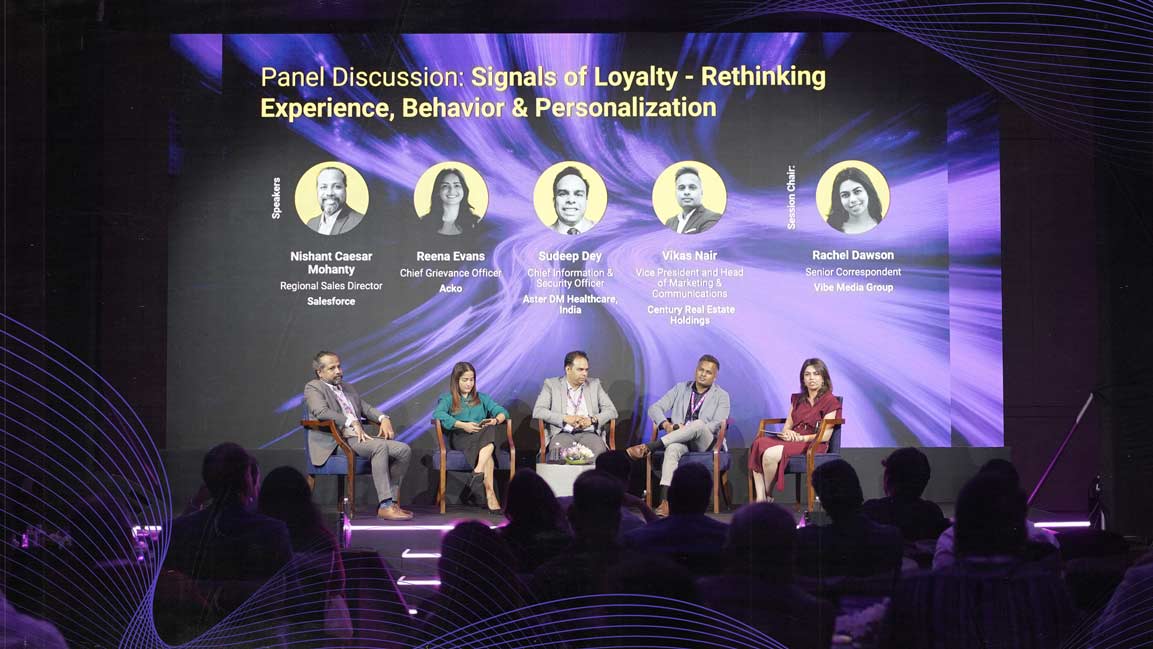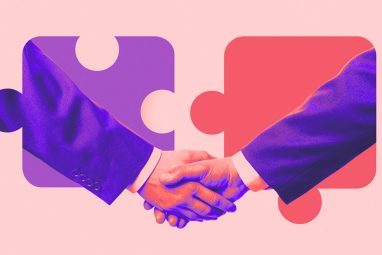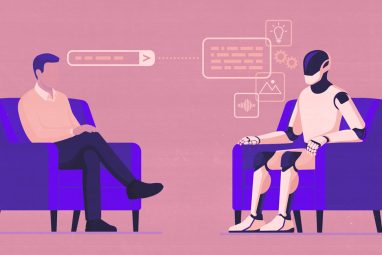Why AI Can’t Replace Emotion in Marketing, for Now
While AI can predict behavior and personalize at scale, true loyalty still depends on human empathy and emotional understanding, said marketing leaders at the Bengaluru edition of the Strategy Shift Forum
Topics
News
- Skild AI Raises $1.4 Billion as Investors Chase General-Purpose Robotics
- Airbnb Taps Ex-Meta GenAI Chief Al-Dahle as CTO
- xAI Moves to Rein in Grok After Backlash Over Explicit Images
- OpenAI Turns to Cerebras as Real-Time AI Takes Priority
- Google Bets on Personalized AI at Scale by Linking Gmail, Photos, and Search
- Meta Shifts Resources From Metaverse Toward AI, Wearables

As artificial intelligence extends its reach into customer experience, marketing leaders at the Bengaluru edition of the Strategy Shift Forum, hosted by MIT Sloan Management Review India and powered by Salesforce, focused squarely on balancing machine intelligence with human empathy.
The panel on “Signals of Loyalty, Rethinking Experience, Behavior & Personalization” convened a cross-section of experts from Salesforce, Acko Insurance, Aster DM Healthcare, and Century Real Estate, who argued that while AI excels at analyzing data and anticipating customer needs, it still falls short in replicating human empathy.
“I think AI is going to probably do a better job at customer service, probably, in terms of anticipating… challenges or… problems that the customers have and providing solutions,” said Vikas Nair, Vice President and Head of Marketing and Communications at Century Real Estate, opening the panel discussion on how artificial intelligence is reshaping customer experience and loyalty.
“But one place where AI might not be as good as empathy, in terms of understanding human emotions, might still remain a challenge. And I believe that’s where people like us… will add value,” Nair said, addressing a gathering of marketing, CX, insurance, and healthcare leaders assembled for the Strategy Shift Forum. “On throwing up solutions, it will supersede human beings. But on the emotional quotient, it will never… catch up with a human brain… AI can definitely master any trends… but it can never feel as to what the trends mean, really, to a human.”
“I think from AI, what it will master is analysis and insights, data analysis and insights. I think that’s something that we’ll all rely a lot on AI. And what it cannot master or will struggle, I feel… is empathy, for sure,” said Nishant Caesar Mohanty, Regional Sales Director at Salesforce.
Panelists agreed that anticipating customer needs—rather than just reacting—sets the new standard for loyalty. Nair added, “We’re using AI to probably kind of shorten the… time period between understanding a problem and figuring out the solution. But the human side… is able to… contextualize it better, probably able to bring in some empathy… and that’s how I look at it.”
Sudeep Dey, Chief Information and Security Officer at Aster DM Healthcare, distinguished loyalty from simple engagement. “We are into healthcare delivery, and for us, patient outcomes are very important. So for that… we do not market like that. We are more worried about engagements. We are more about… wellness… because if we engage in time, we are able to prevent. Prevention also saves almost 40 to 50 percent of the cost of healthcare… and even outcomes are better.”
Reena Evans, Chief Grievance Officer at Acko Insurance, described how predictive models reshape insurance processes: “For us, it’s just not faces, it’s just the human who is interacting, comes to us when there is… a grievance on the ground which is happening. So predicting who is the customer, why are they calling, what could be the possibility. At the same time, predicting a probable escalation which could happen because of the tonality or because of something… it’s basically we are landing a message which customer is not happy about.”
Evans continued, “Knowing the predictive model helps us to be more context aware of what we need to talk to him and also frame or empathize with him by putting our senior folks who can understand and work with the customer better… AI is a directional understanding of what the customer’s behavior is, but that does never determine what we or how we see the customer… there are certain indicators… which definitely tells us on the behavioral pattern… Maybe not immediately, maybe we would have settled the claim, but down the lane when this keeps repeating, there is a certain pattern which AI is definitely helping us to work and also go back and correct…”
“The bad side of AI… is the kind of claims that we get are fully photoshopped. Same car, sometimes a left accident and sometimes a right accident. Same customer, he’s dead. Death certificate is there. And so this all gives us a trend… Fake death certificates? It doesn’t look fake…”
Privacy and governance were central. Sudeep Dey explained, “One is on privacy and collaboration. The other is on how do you give personalized care?… for treatment, personalization is to the T of your cells, your genes. So for that, that data, once it is taken in, it is taken in with all the privacy laws which we can think of… By separating out the purpose of the data usage, we have handled it in two different systems.”
Nishant Mohanty reinforced, “Privacy is the foundation on which personalization is built…. customers parting with data with you, trust you as a brand, which means the brand responsibility is to build trust with their customers… that happens when the brand is also using technology, which is compliant… for you to help me… for you to understand me.”
Evans recounted a high-stakes customer incident: “The customer’s pregnant, and she’s not ready to listen… it led to a massive social media escalation that Acko is not friendly, and now the same customer… we tried explaining, we brought her, we canceled, we did all the best we could do, we issued a policy, and she made a statement while leaving that ‘I hope if I ever have to use you for my claim that you will be able to make me feel comfortable about the whole thing.’” One year later, Evans said, that customer became a brand ambassador: “So that’s the emotion, right? So you did wrong, and she felt good. That’s what the emotions are.”
Audience questions pointed to frustrations with IVR calls and privacy trade-offs. Siddharth Surana of Agrivolution asked, “How do you reflect on, you know, reaching a customer for, say, selling a home or a piece of property… just over an IVR, and repeated IVR… But I think things are at the verge of changing… It will move towards a situation where you will probably look forward to information that is relevant to you, and then basis that you might be able to make those decisions…”
During the behavioral science masterclass, Patrick Fagan said, “As an applied behavioral scientist… take the academia, the science of psychology, but think about how to practically use it in the real world for real world behavioral commercial outcomes… If you’re not personalizing the experience, you’re wasting spend… Also, you might have user attrition because you’re not building the relationship in the most effective way.”
Asked if AI will ultimately make customer experience more human, the panel closed with a consensus: “Over time, yes.”




